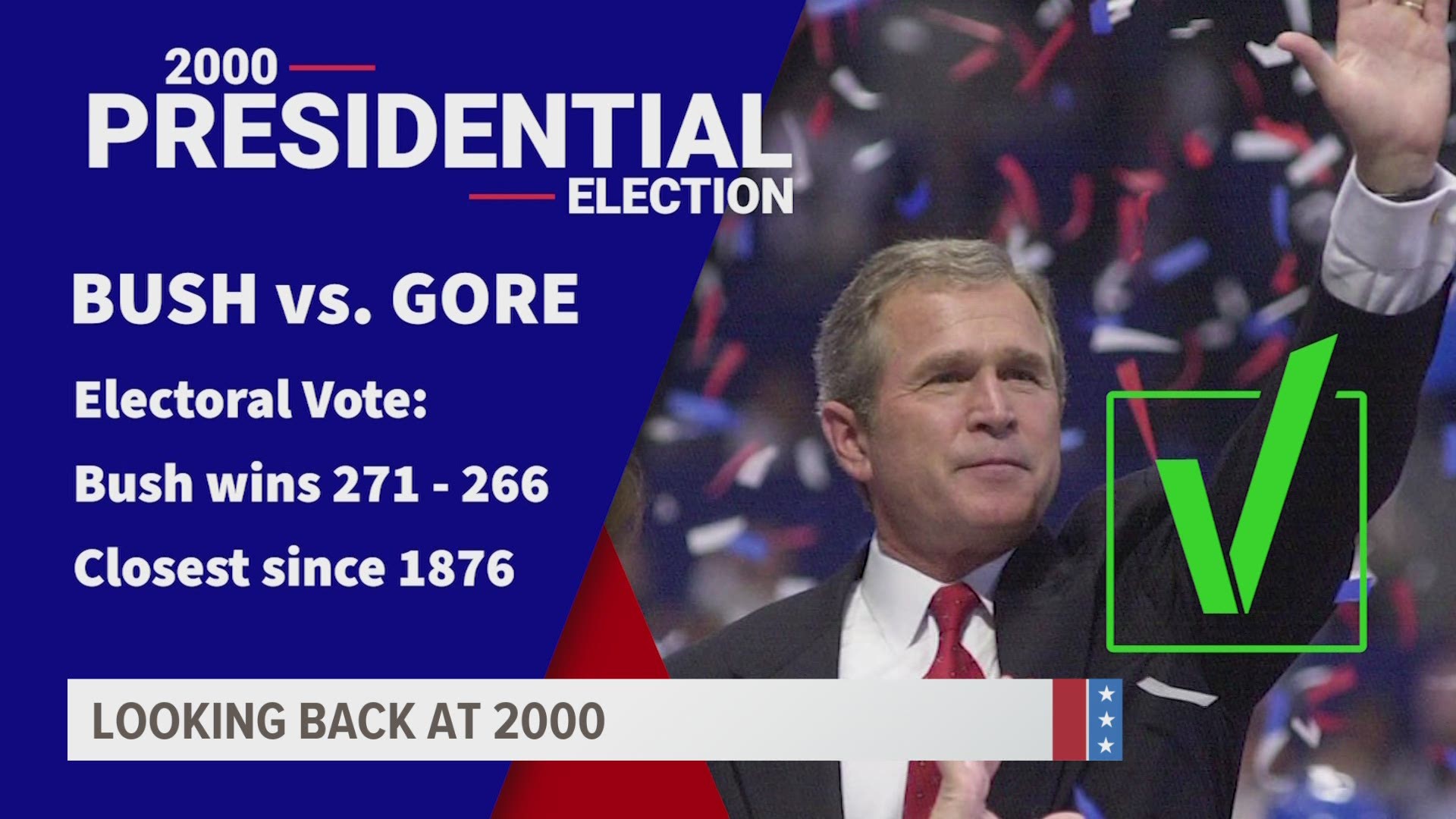From social unrest to the global coronavirus pandemic, issues shaping the 2020 general election may be unique.
But the contest between President Donald Trump and former Vice President Joe Biden has plenty of historical correlations.
Maybe you're one of the over 70 million people who have already voted and are left wondering: What happens now?
What if we don't have a clear winner on election night, or days after the election What if legal challenges delay results?
This all brings us back to 2000, and the presidential election between then-Vice President Al Gore and Republican George W. Bush.
Gore captured the popular vote, but it was close. Less than 1% separated the two.
The electoral vote also so close. It all came down to the state of Florida.
The returns came back so close, their state law required an electronic recount which showed Bush won by 537 votes. Gore contested the results all the way to the state's Supreme Court, which ordered 70,000 rejected votes be counted.
That's when the U.S. Supreme Court got involved and halted the order, citing the statewide recount of ballots was unconstitutional on equal protection grounds on Dec. 12.
Bush went on to win the state of Florida and secured the electoral vote 271 to 266, the closest since 1876. Gore's 266 electoral votes is still the highest for a losing nominee.

